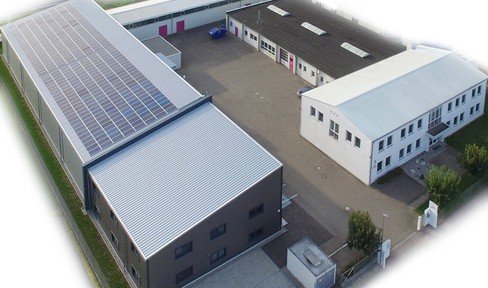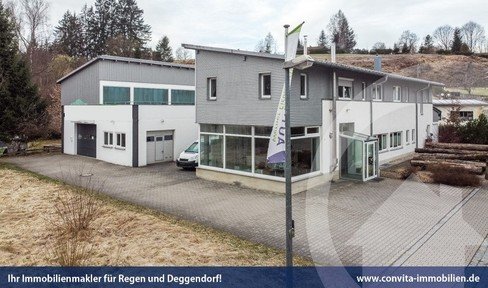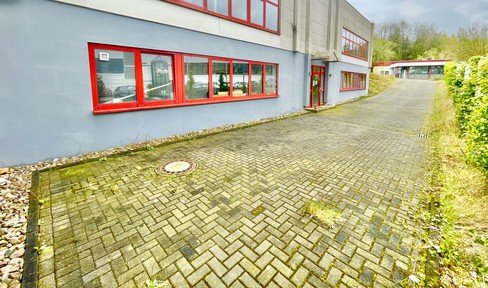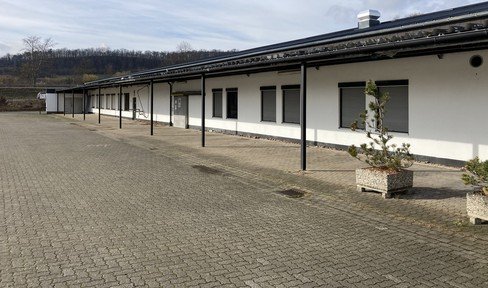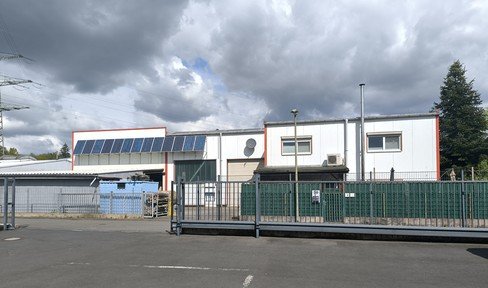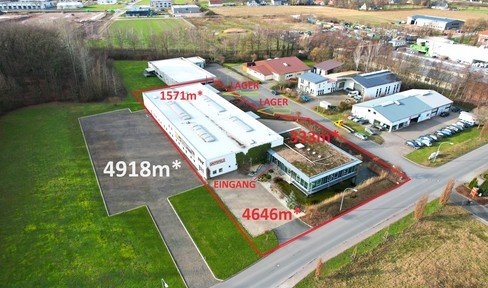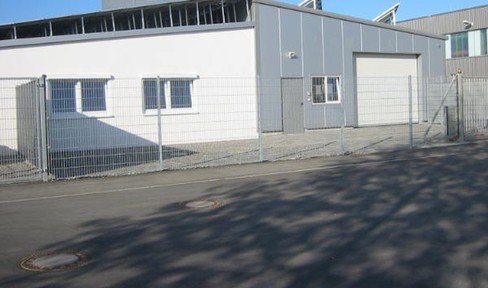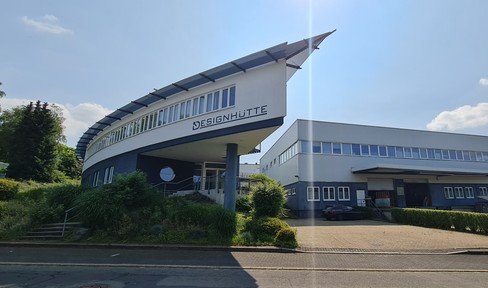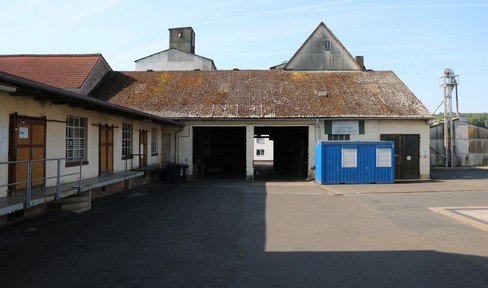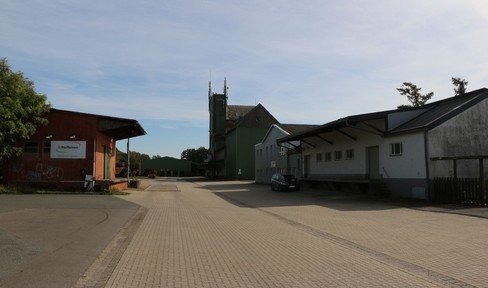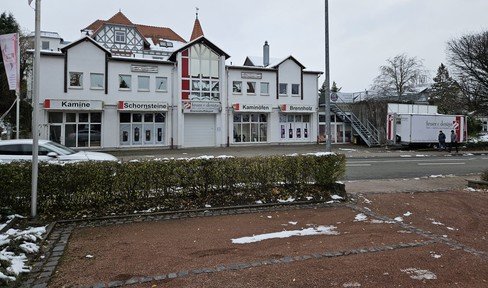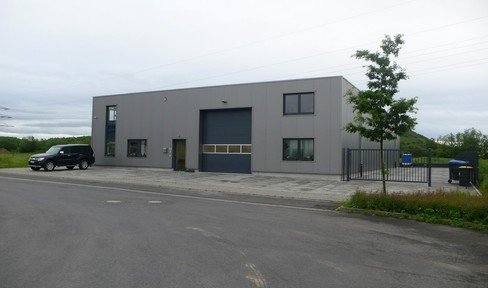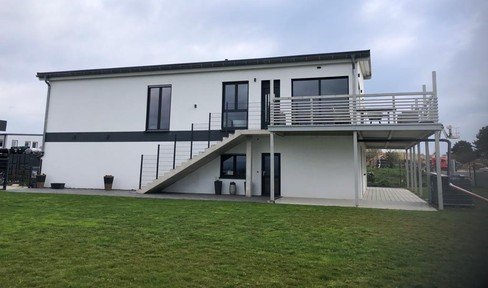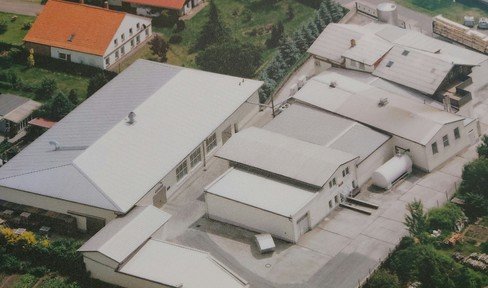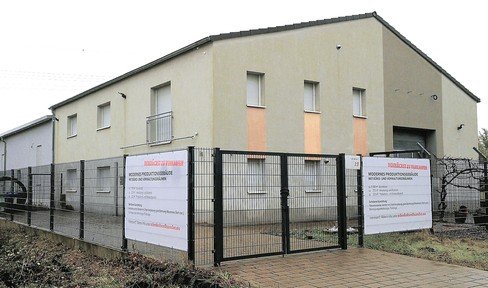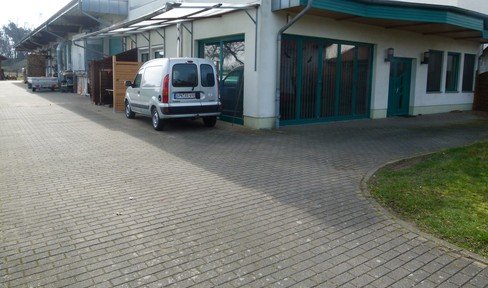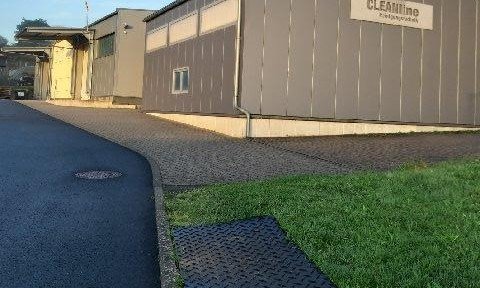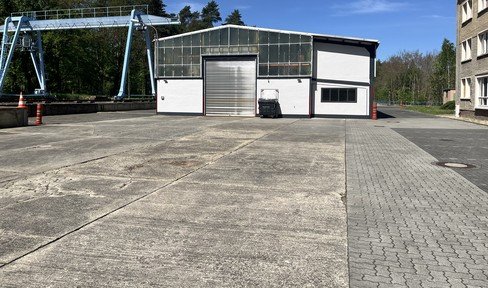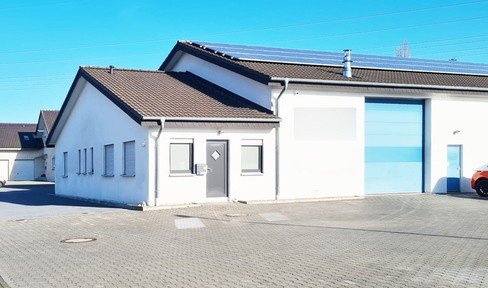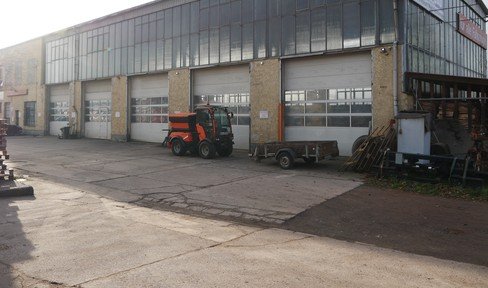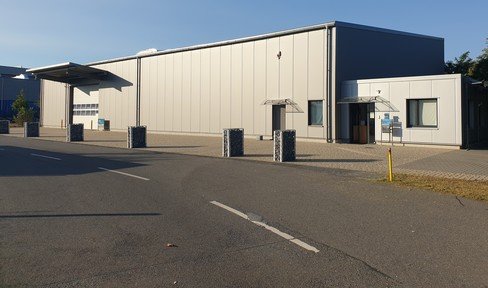- Properties
- Warehouses for sale

This page was printed from:
https://www.ohne-makler.net/en/properties/warehouse-buy/
Comission-free Warehouses for sale from private
Here you will find from 34 offers for commission-free Warehouses your property
Planning as precisely as possible before purchase usually saves a lot of money, effort and trouble
The first and basically most important question that every interested party and potential buyer of a warehouse or commercial hall or production area must ask himself and answer in as much detail as possible is, of course, the one about the exact requirements that the premises or also the site must fulfill as reliably as possible in the short, medium and/or long term. Depending on the demands, special features and requirements of the respective industry, the selection of objects is thus already largely limited or extended. In addition to the obvious parameters such as the necessary size, a suitable location and a price that is appropriate to the requirements, it is often the details that at first glance may seem secondary that in the long run determine the satisfaction - or dissatisfaction - with the selected building. For example, someone who only wants to store less sensitive goods or materials, such as building materials or bulky waste, for a short period of time usually has far less to worry about in terms of the exact nature of the accommodation than someone who may need reliable refrigeration for the storage of perishable foodstuffs. The role of safety or security of the hall or area also appears to be at least as important. If costly products, valuable goods and expensive work equipment are present there without regular checks or even 24-hour surveillance by security guards or control personnel, the owner should definitely think about the current technical status of burglary protection and alarm systems in good time, if only for insurance reasons.
The location, the site and the surroundings must be suitable for the industry in question.
Particularly in the case of commercial halls and production areas, other important questions should also be clarified and decisions made, for example with regard to possible noise and pollutant emissions and other possible adverse effects and nuisances for neighbors and residents. In a purely residential area, the construction, opening or expansion of a noisy factory is likely to quickly reach certain limits for legal reasons alone. However, even if a corresponding permit for the operation of such a factory is available, e.g. in designated mixed areas, one should thoroughly inform oneself about the local or regional legal provisions, spatial conditions and the customs in the immediate as well as the wider neighborhood in order to avoid possibly protracted and costly legal disputes before purchasing a hall or area. Of course, this recommendation does not apply, or only to a limited extent, to purely industrial estates of older and more recent date in cities and municipalities, which were and are mostly built far outside residential areas and at some distance from facilities such as hospitals, retirement homes, schools, kindergartens and the like, precisely for the reasons mentioned above. Such areas, planned and designed exclusively for storage and/or production, often offer a suitable and usually quite cost-effective solution for very different economic sectors, but, as mentioned above, they are usually located far away from the centers and city centers, which in turn makes them less suitable for some businesses or companies to settle.
Newly created jobs are actually a welcome argument everywhere
Nonetheless, the relevant departments and divisions of most German cities and municipalities, if only for reasons of the trade tax they hope to receive in the future, also deal with demanding inquiries for warehouses and commercial or production areas throughout their territory with a great deal of vigor and ambition. In today's times of municipal to global competition for business locations, usually no one in the administration wants to scare off even small to medium-sized potential investors and/or employers on site. Particularly in rather rural and/or structurally weak German areas such as for example in the northeastern Mecklenburg-Western Pomerania, southwestern Rhineland-Palatinate, eastern Brandenburg or in the central Ruhr area in North Rhine-Westphalia, people are often very open-minded towards the new settlement of especially future-oriented industries and willing to grant favorable as well as accommodating conditions, in some cases even subsidies for business operators. However, even large cities that are supposed to be more expensive for the purchase of warehouses as well as commercial and production areas have nowadays combined their contact and advisory offices as well as decision-makers, which used to be often spread over different departments, mostly in a less bureaucratic way in compact offices for economic development. In this context, it is also important for interested buyers of commercial real estate to be informed about the thematic fields of competence and cluster initiatives, which vary from state to state and are supported to a greater or lesser extent by public funds. For example, Baden-Württemberg supports companies from the aerospace industry, Bavaria promotes biotechnology, Berlin and Brandenburg make good offers to the communications and creative industries, Hamburg promotes ideas and projects from the maritime sector, and Lower Saxony focuses on packaging technology and automotive engineering.
Short facts Storage, trade and production areas:
- What do you want to store or produce where, how, for how long, why and for what?
- The industry or trade largely determines the choice of property
- Purely residential areas are generally only suitable for non-disruptive storage
- Mixed-use areas are often more centrally located, but are frequently subject to restrictions
- Industrial estates permit many kinds of activities, but are usually located outside
- Competition for business locations allows room for negotiation
- Regional thematic focuses can make the decision much easier
Properties to Rent
Properties for Sale
Popular Cities
Diese Seite wurde ausgedruckt von:
https://www.ohne-makler.net/en/properties/warehouse-buy/
